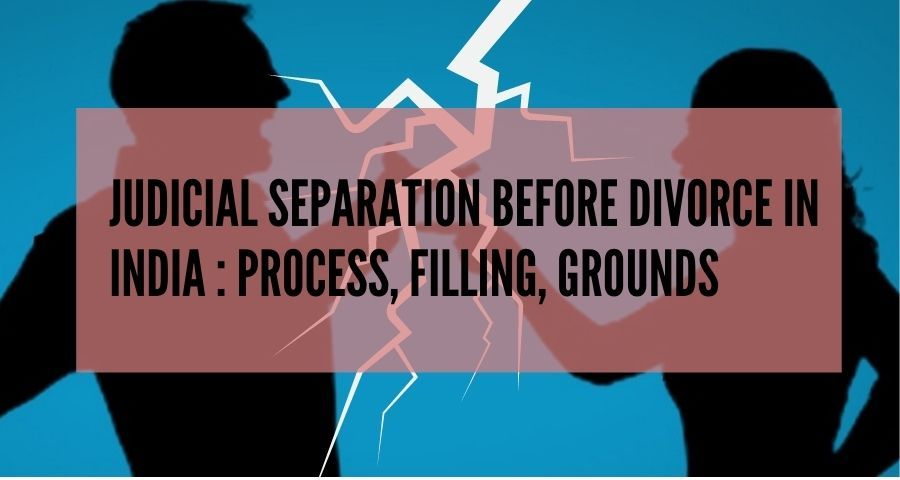Process of Judicial Separation before Divorce in India

What is judicial separation?
Judicial separation temporarily suspends the marriage. It is a legal way through which the court lets the husband and wife to rethink about their relationship and at the same time guide them to live separately. By doing this the court gives time for self-analysis of both the parties of a disturbed married life and their future planning, while keeping legal breakup of the marriage as the last resort.
Judicial separation is available for both the spouses under Section 10 of the Hindu Marriage Act,1955 and can be simply claimed by filing a petition through divorce lawyers in Mumbai. Once the order is passes, they are not bound to have cohabitation.
Filing petition for judicial separation
A petition can be filed by either of the spouses in a district court under Section 10 of the Hindu marriage act,1955 and the following should be satisfied:
- The marriage between the husband and wife should be celebrated properly under this act.
- The respondent ought to be gotten comfortable in the jurisdiction of the court where the petitioner filed the petition.
- The husband and wife lived together for a particular period of time before filing the petition.
And then every petition according to Order VII Rule 1 of the Civil Procedure Code 1973 must have:
- The date and place of marriage
- The individual ought to be Hindu by his/her affirmation
- Name, status and address of both the parties
- Name, date of birth and gender of the children (if any)
- Details of litigation filed before filling the decree for judicial separation
The grounds are clearly mention under Section 13 of the Hindu marriage act, 1955 and are as follows:
- Adultery, where any of the spouses voluntarily had sexual intercourse with any other person except his/her spouse.
- Cruelty, when a spouse treats his/her partner with cruelty or inflict any mental or physical pain after the marriage, the aggrieved party can file a petition on the grounds of cruelty.
- Desertion, if the spouse left the other spouse for any reason without informing him/her for a period not less than 2 years before filling the petition by another spouse, desertion gives a right to claim relief of judicial separation for the aggrieved party.
- Conversion/Apostasy, if any spouse gets converted into any other religion apart from Hindu, then the other partner can file for judicial separation.
- Unsoundmind, if any spouse in a marriage is suffering from any mental disease which makes it difficult for the partner to live with the sufferer, then the other spouse can claim relief from judicial separation through a well experience divorce advocate in India.
- Leprosy, if any person is suffering from any disease, such as leprosy, which cannot be recovered, then the other spouse can file a petition for judicial separation.
- Venerealdisease, if any spouse has any type of disease which is incurable and communicable and the other spouse does not know about the fact at the time of marriage, then it could be a valid ground to file a petition for judicial separation.
- Renounced the world, a person who has given up the world and leading a holy life. He/she is considered a civil dead and if a spouse renounces the world to live a holy life, then their partner can file for judicial separation.
- Civil Death/ presumed death, if a person is not found for 7 or more years and no other person have heard from him/her or it is believed that he/she may be dead, then the other spouse can file for judicial separation.
- Bigamy, if the husband is remarried while he is already married, both his wives have a right to claim the petition for judicial separation with a condition that, the other spouse is additionally alive simultaneously as documenting.
- Rape, sodomy or bestiality, a wife has a right to file a petition for judicial separation if her spouse is guilty for charges like rape, sodomy or bestiality after the marriage.
- Repudiation of marriage/ A option of puberty, if a girl’s marriage happened before she has turned 15 years of age then she has a right to claim judicial separation.

